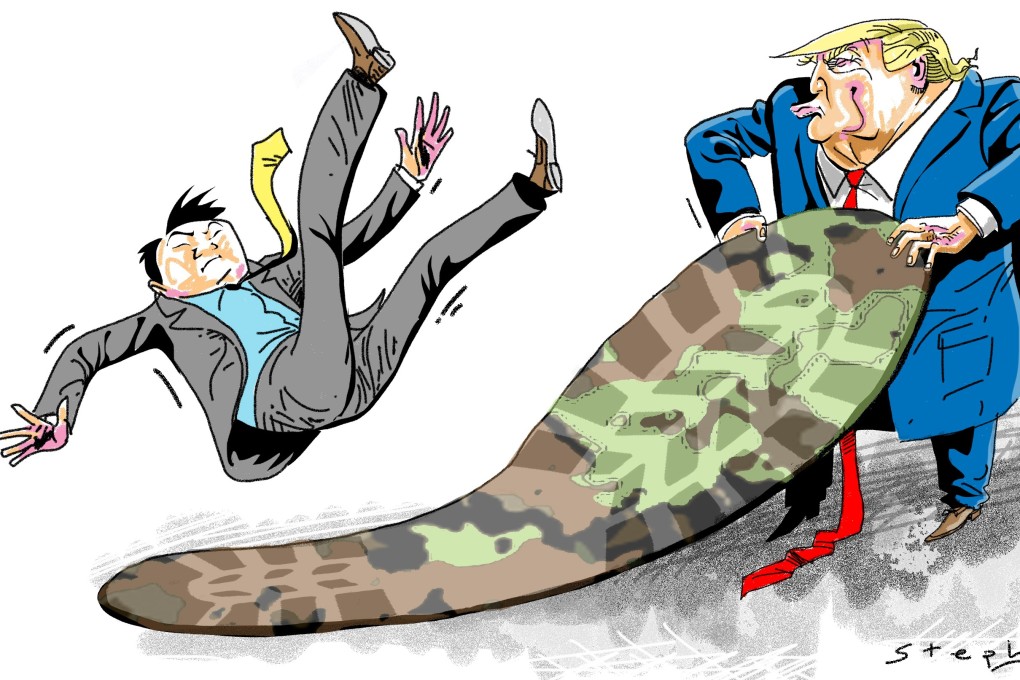Advertisement
Opinion | Trump’s troop withdrawals are forcing Asia to contemplate a post-US future, particularly in the South China Sea
- By threatening to pull out of South Korea and letting a long-standing US-Philippines military agreement end, Trump has breached the unthinkable
- The worry is that the US may strike a withdrawal deal with China in the South China Sea, carving up the disputed waters in a sort of Guam Doctrine
Reading Time:4 minutes
Why you can trust SCMP

The United States has announced a historic withdrawal from Afghanistan after bagging a negotiated deal with the Taliban, ending a war in a country where American troops have been fighting for nearly two decades.
Advertisement
Historic retreats are not new to the American geopolitical lexicon. In 1978, the US announced that it would sever diplomatic relations with Taiwan and recognise the communist government in Beijing. In 1975, US forces withdrew from South Vietnam, after coming to a negotiated settlement with the North.
The idea of American retrenchment has again gained ground. Writing in Foreign Affairs magazine, Thomas Wright noted that both realists and progressives share a common view about retrenchment: that the US is better served if it reduces its global military footprint and security commitments.
The transactionalism of US President Donald Trump, however, is new. Since taking office in 2017, the US has badgered allies around the world to pay more for their defence. In Asia, the US has reportedly asked its South Korean ally to increase its financial support fivefold for American forces in the country. Trump has also asked Japan to dole out more.
Leveraging his “America first” strategy, Trump has withdrawn support for the Trans-Pacific Partnership, a landmark trade deal that would have seen US involvement in the world’s most dynamic region. More recently, Trump’s tepid response to the Philippines’ termination of a long-standing Visiting Forces Agreement (“it will save a lot of money”) has only stoked worries about growing American indifference.
In 2008, I wrote about Uncle Sam’s “attention deficit disorder” to the region. The Barack Obama administration, I argued, was too focused on the wars in Afghanistan and Iraq. There were questions about the durability of the so-called US “pivot”, or rebalance, to the Asia-Pacific.

Advertisement
